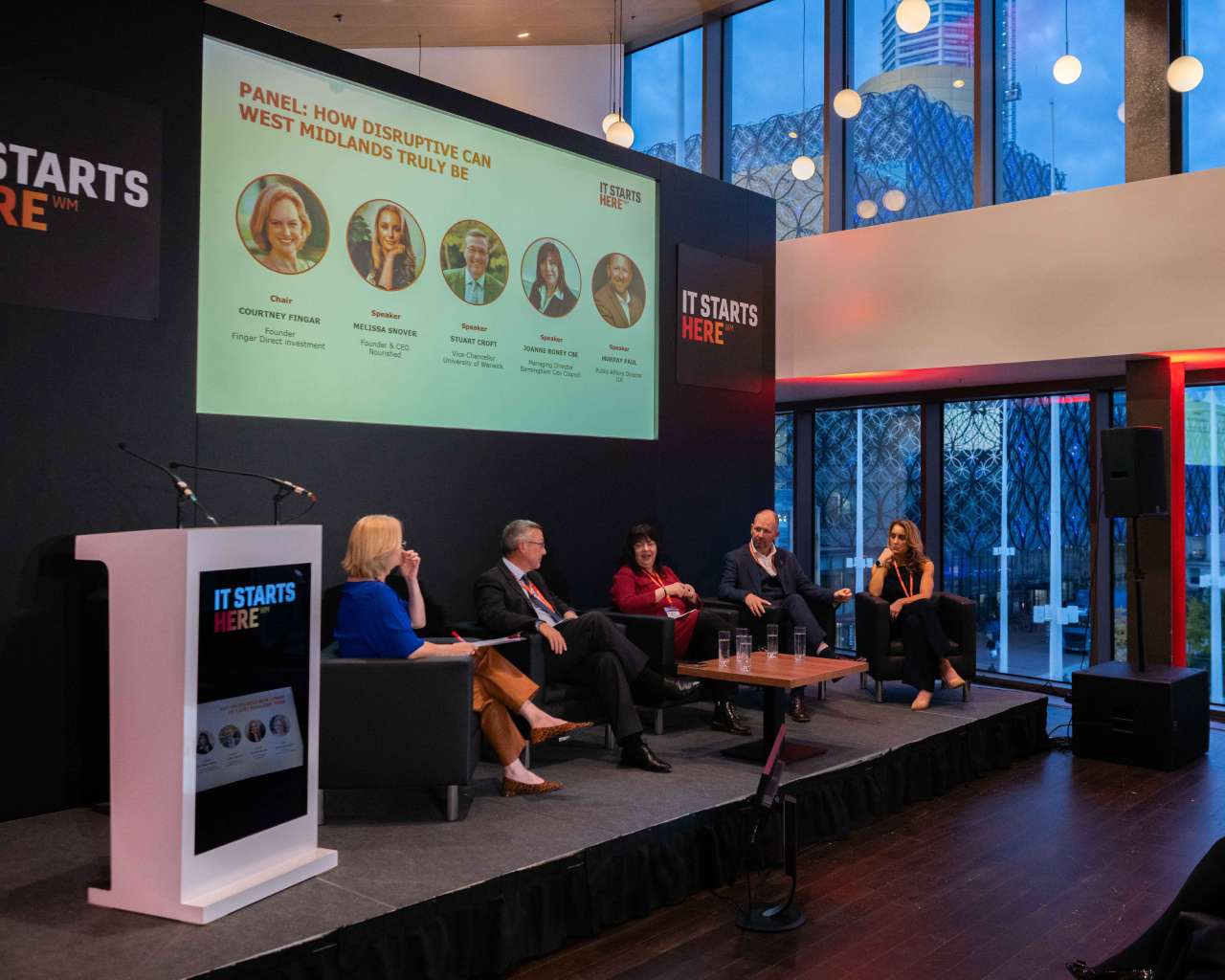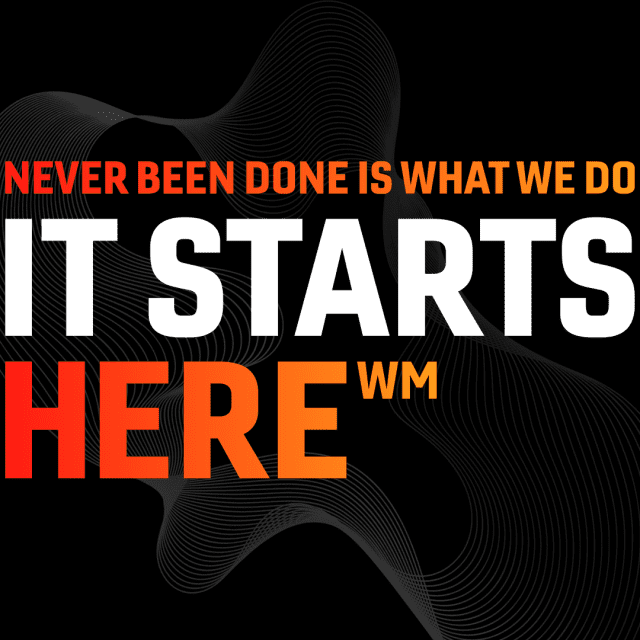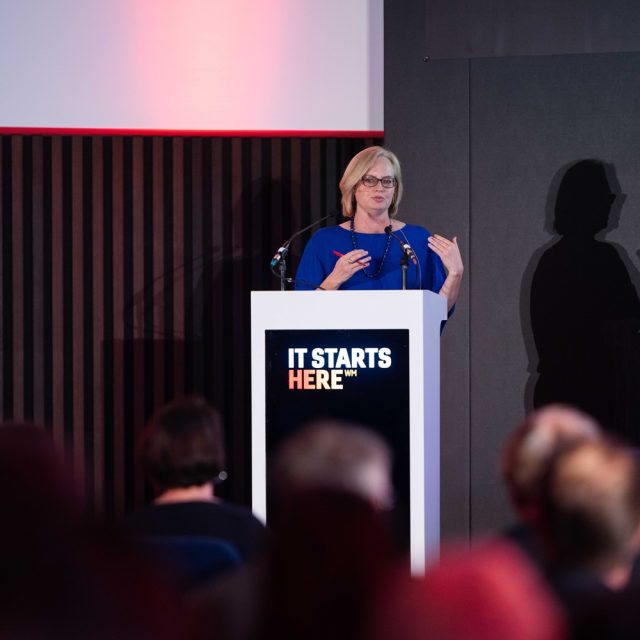The West Midlands is more than a location; it is a region with an identity, a vision, and a palpable ambition for global growth. As we gathered at the panel discussion marking the launch of the “It Starts Here” campaign, the room was filled with influential voices from public and private sectors, academia, and industry. The goal was clear: to affirm the West Midlands’ commitment to becoming a leading innovation hub and to invite the region’s businesses to join in telling this unique story to the world.
The panel’s conversation highlighted key facets of what sets the West Midlands apart from other regions and explored how we can drive investment, growth, and prosperity in an inclusive, distinctive, and sustainable way. Here’s a closer look at the standout themes and insights that emerged as we consider the future of the West Midlands and its global role in innovation.
A Strong Regional Identity with Deep Roots in Innovation
This is a region-wide opportunity of masterclass sector development that really does collaborate together.
The challenge we’ve got is to sell it and to do that, learning from elsewhere.
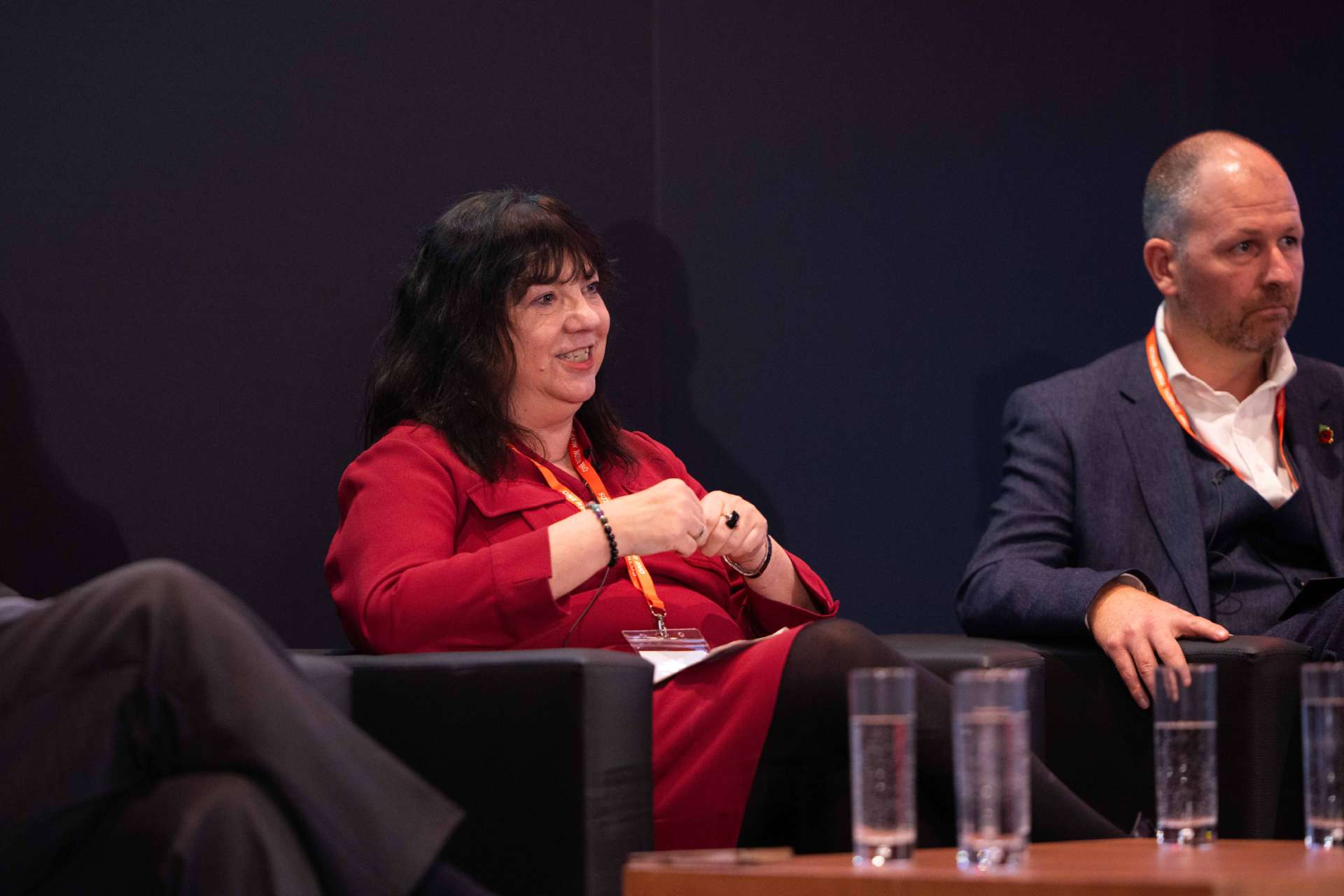
Joanne Roney CBE, recently appointed as the Managing Director for Birmingham City Council and a proud “Brummie,” opened the discussion with an emphasis on the West Midlands’ unique identity. Historically, Birmingham’s coat of arms features a scientist and an artist, a testament to the region’s roots in creativity and technical innovation. This blend remains the backbone of our vision today. Roney pointed out that the West Midlands’ opportunity for growth is not limited to Birmingham’s city centre; it’s a region-wide initiative, with the potential for collaborative growth across sectors and communities.
“This is a region-wide opportunity of masterclass sector development that really does collaborate together,” she said. But for this potential to be realised, we must amplify the region’s story and identity. Roney called on businesses to become ambassadors of the region, with public sector support to facilitate connectivity and remove barriers. “The challenge we’ve got is to sell it and to do that, learning from elsewhere,” she remarked.
Building on Strength: Talent and Support for Entrepreneurs
Entrepreneur Melissa Snover, who has called the West Midlands home for the last decade, shared her perspective on the growth she has witnessed. Initially drawn to the area for its university network and resources in advanced manufacturing, she described how the city has transformed over the years into a thriving space for innovation. Snover commended Birmingham for maintaining its “disruptive, innovative attitude and culture while offering great public services, safety, jobs, and education.”
What makes the West Midlands distinct, according to Snover, is its accessibility and commitment to keeping opportunities open for young talent and creatives. “Access to space, access to support…all within the region, while still being cost-effective enough to not push out all of the young people and the creatives and the new businesses,” she said. It’s this commitment to inclusivity and affordability that sustains the region’s vitality and makes it a place where the future of innovation is accessible to all.
An Industrial Strategy to Anchor Sustainable Growth
Looking beyond the West Midlands to the national stage, the upcoming UK industrial strategy will be critical in shaping the region’s future. Stuart Croft, Vice Chancellor of the University of Warwick, outlined three essential elements he believed must be integrated: a sector-by-sector approach to technology, a unified approach across government departments, and a bold narrative that positions the West Midlands as a leader rather than a follower. “We need a narrative. We need to be the disruptor,” he emphasised. “We need not to be Manchester Mark II.”
This strategic alignment is vital for fostering an environment where business and government can work effectively together, with industrial strategy as the bridge that links local capabilities to global ambitions. Croft also highlighted the West Midlands’ potential as a model for regional growth across the UK, setting standards and sharing insights on how to foster an environment that is primed for global competitiveness.
Collaborative Government-Industry Partnerships to Support Long-Term Investments
Industrial strategy is not something a government does to industry; it’s something government needs to do with industry.
Murray Paul, representing a major industrial player, stressed the need for continuity and collaboration between government and industry. This is especially important for the West Midlands’ commitment to net-zero goals, where Jaguar Land Rover is investing in zero-emission technology in the region. Paul, JLR’s Public Affairs Director, underscored that industrial strategy must be shaped alongside industry input, to address the ever-evolving needs of sectors and regions. “Industrial strategy is not something a government does to industry; it’s something government needs to do with industry,” he asserted.
Paul also acknowledged the importance of stability in regulatory frameworks to support long-term investments. For businesses like Jaguar Land Rover, which are already investing billions toward sustainable innovation, consistent policy support is key to giving them—and other investors—the confidence to continue their work in the region. The opportunity for regional supply chains to support net-zero goals adds another layer of value to the West Midlands as a destination for forward-thinking investors.
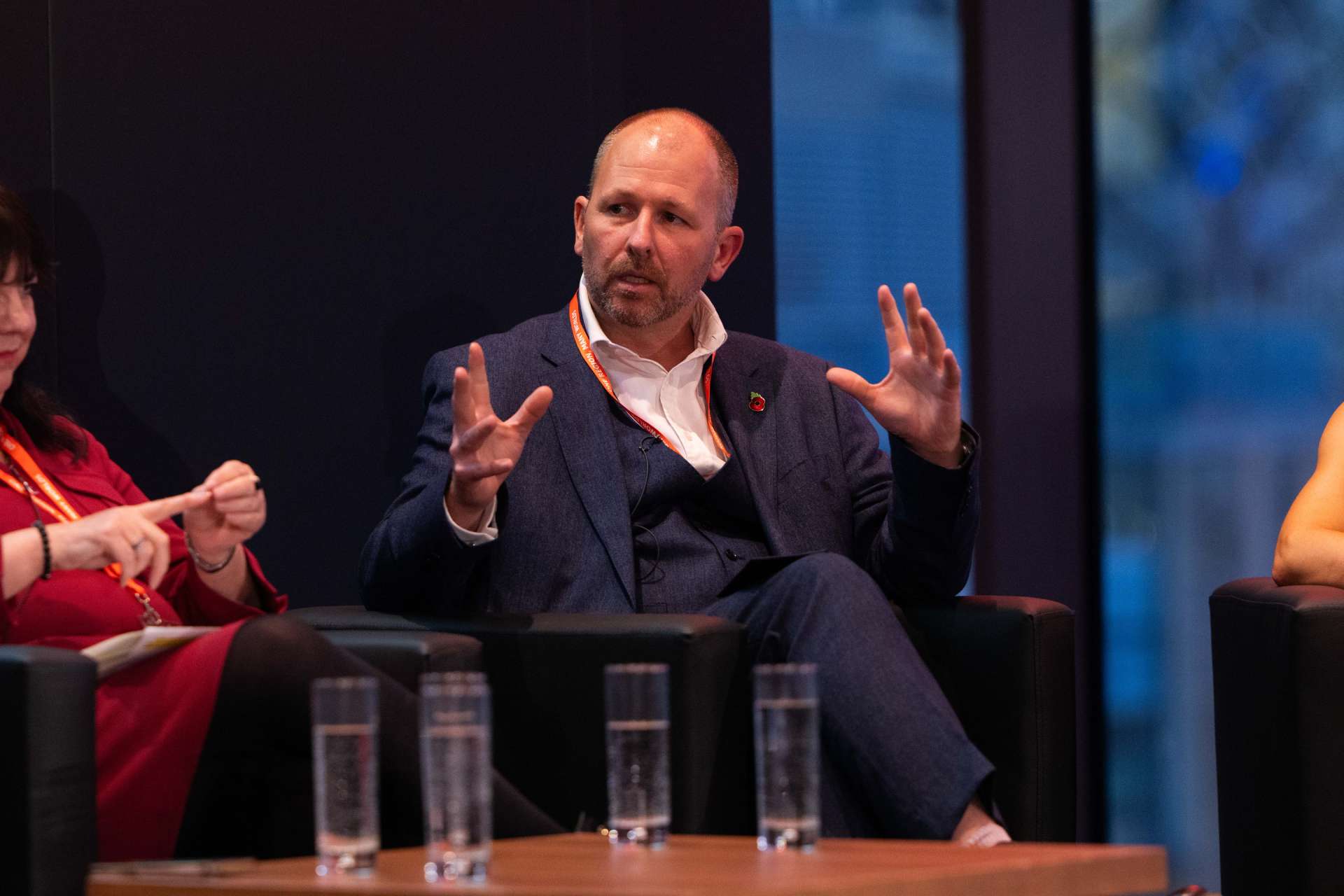
Inclusive Growth for a Globally Competitive West Midlands
Growth must be inclusive, ensuring that success is shared across communities in the West Midlands. Roney reiterated that as the region markets its strengths and nurtures talent, it also has to address productivity challenges and support smaller companies to build a stronger economic base. The West Midlands Combined Authority and the devolution deal offer unique mechanisms to allocate resources where they are most needed, with devolved funding allowing for greater agility and localised impact.
Roney affirmed that by distributing investment throughout the entire West Midlands and supporting a culture of inclusivity, we can create a region where everyone benefits from growth. “We’re an easy place to do business with, an easy place to address talent, invest in young people…at a big scale,” she said, describing how these attributes make the region appealing for inward investment and help it stand out on the global stage.
The Role of Universities in Driving Innovation
Universities in the West Midlands are instrumental in supporting innovation, research, and partnerships with industry. Stuart Croft highlighted how the University of Warwick, in particular, has fostered business engagement through its science park and various initiatives, collaborating with over 4,000 companies in the region and helping secure substantial investments.
This research infrastructure offers spaces for co-location, testing, and scaling ideas, which is vital for fostering innovation at all levels. By working closely with businesses and other universities in the region, Warwick and other institutions are creating a framework where knowledge and resources flow between academia and industry, propelling the West Midlands’ reputation as a top-tier hub for technological and industrial innovation.
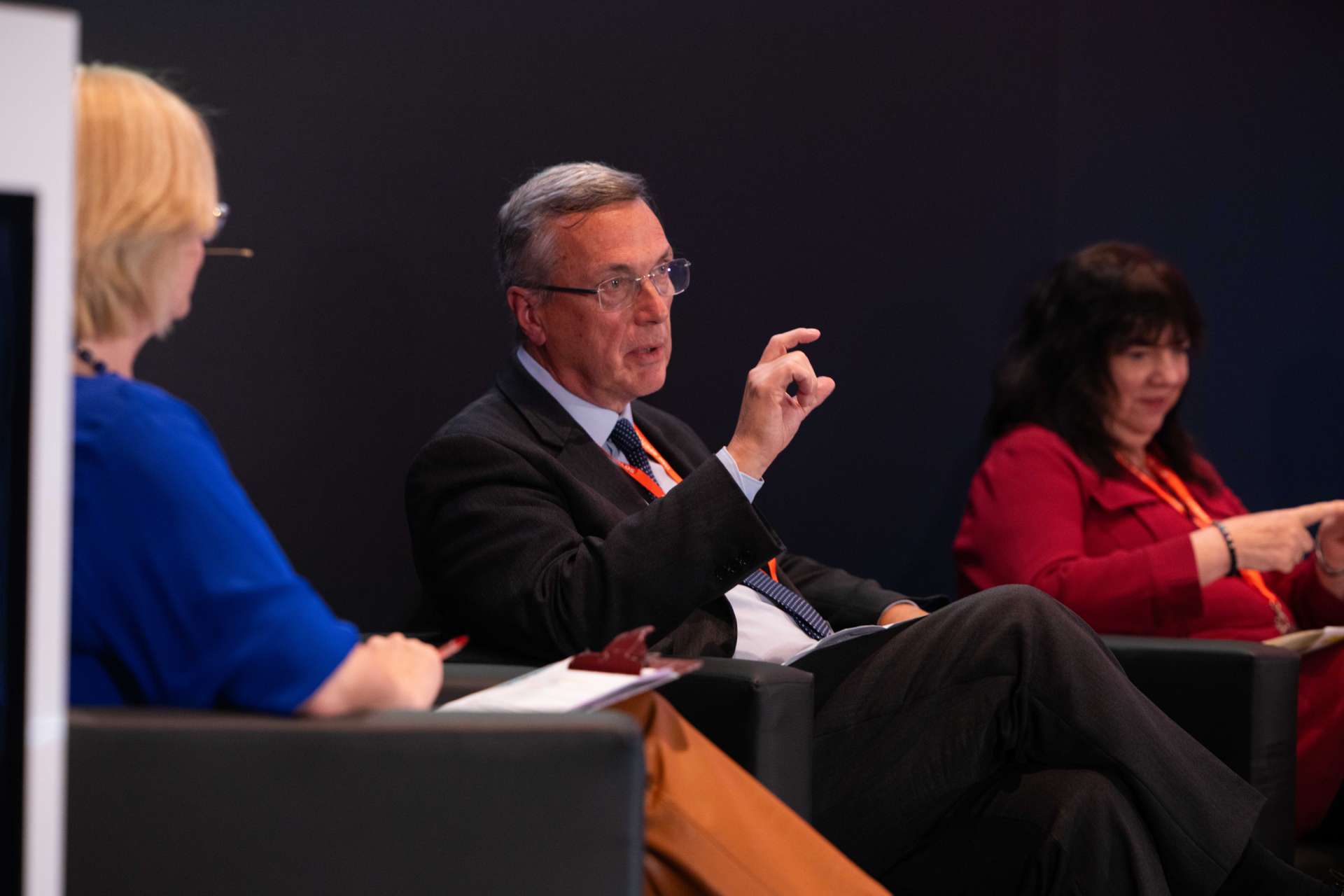
A Culture of Resilience and Willingness to Take Risks
Finally, the panel closed with a reflection on risk-taking, essential to any culture of innovation. Snover shared her company’s practice of “Failure Fridays,” which encourages employees to share and celebrate their biggest setbacks each week to reinforce that failure is simply part of the journey toward success. This culture of resilience is something she believes the West Midlands can be proud of, and a mindset that will attract and retain bold thinkers.
“Our business is really built on innovation…Every single failure is actually a step toward the goal,” she said. By creating a culture that is open to experimentation, the West Midlands positions itself as a place where transformative ideas can thrive.
It Starts Here: An Invitation to Join the Story
As we embark on the “It Starts Here” campaign, we’re calling on all stakeholders and partners to amplify the West Midlands’ story. By joining forces, sharing our routes to success, and championing the opportunities here, we can position the West Midlands as a leader in innovation and inward investment. Whether through supporting local talent, advancing green technology, or fostering inclusive growth, every contribution helps strengthen our message to the world.
The West Midlands is primed for a bold future. Together, we will write the next chapter of this journey, showcasing our unique strengths and our commitment to innovation. As the campaign proclaims, It Starts Here, and with your partnership, the West Midlands will continue to grow, disrupt, and hopefully lead on the global stage.
